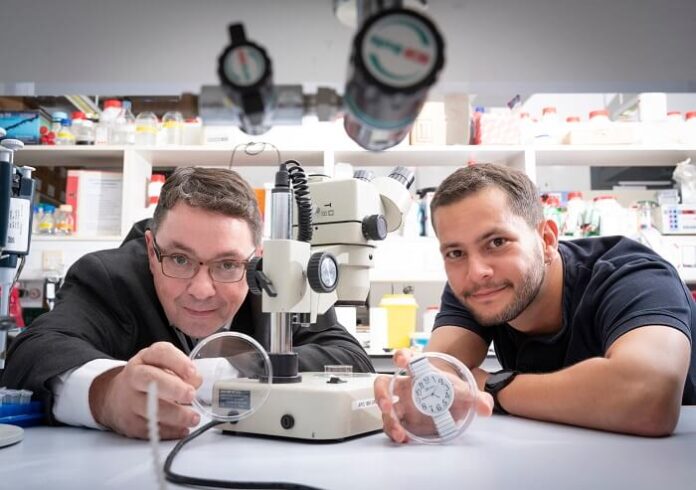

A groundbreaking study has highlighted the crucial role of gut microbiota in regulating the body’s stress response through interactions with circadian rhythms. These findings pave the way for new microbiome-based treatments that could support mental health, potentially aiding in the management of anxiety, depression, and other stress-related conditions linked to disrupted circadian and sleep cycles.
As reported by medicalxpress, the research, conducted by University College Cork and APC Microbiome Ireland, underscores how the trillions of microorganisms in the gut influence hormonal responses to stress in a time-dependent manner. The study details how gut microbiota impacts the hypothalamic-pituitary-adrenal (HPA) axis, which is central to the body’s stress response.
Notably, the study found that when gut microbiota are depleted, the HPA-axis becomes hyperactive in a time-specific way, affecting the brain’s stress and circadian-regulated areas and altering stress response patterns throughout the day. The researchers identified specific bacteria, including the strain Limosilactobacillus reuteri, as important modulators of this circadian-regulated stress mechanism. This bacterium appears to influence glucocorticoid (stress hormone) release, linking the natural daily rhythm of gut bacteria to fluctuations in stress responsiveness.
These insights hold significant potential for developing psychobiotic interventions aimed at improving mental health by targeting gut bacteria that affect stress regulation. Given modern lifestyles characterized by disrupted sleep patterns, high stress, and poor diets, the study emphasizes the importance of a healthy microbiome in supporting the body’s natural stress-regulation processes.
Principal Investigator Professor John Cryan remarked, “Our research reveals a vital link between gut microbiota and the brain’s time-specific stress response. Beyond digestion, the gut microbiome plays a critical role in how we respond to stress, following a precise circadian rhythm. This highlights the need to maintain a healthy microbiome, especially in today’s fast-paced world.”
First author Dr. Gabriel Tofani added, “Our work shows that it’s not just the makeup of gut microbiota that matters but also how these bacteria change across the day. By showing how gut bacteria influence stress responses throughout the day, we’re advancing our understanding of the mechanisms through which the microbiota shapes our response to the environment.”
Professor Paul Ross, Director of APC Microbiome Ireland, called the study a “significant leap forward in understanding how the microbiome shapes mental health,” adding that targeting specific bacteria could improve or prevent stress-related conditions.
Conducted at APC Microbiome Ireland at University College Cork, this research advances the field of gut-brain axis studies, reinforcing the broad impact of gut bacteria on both mental and physical health.























